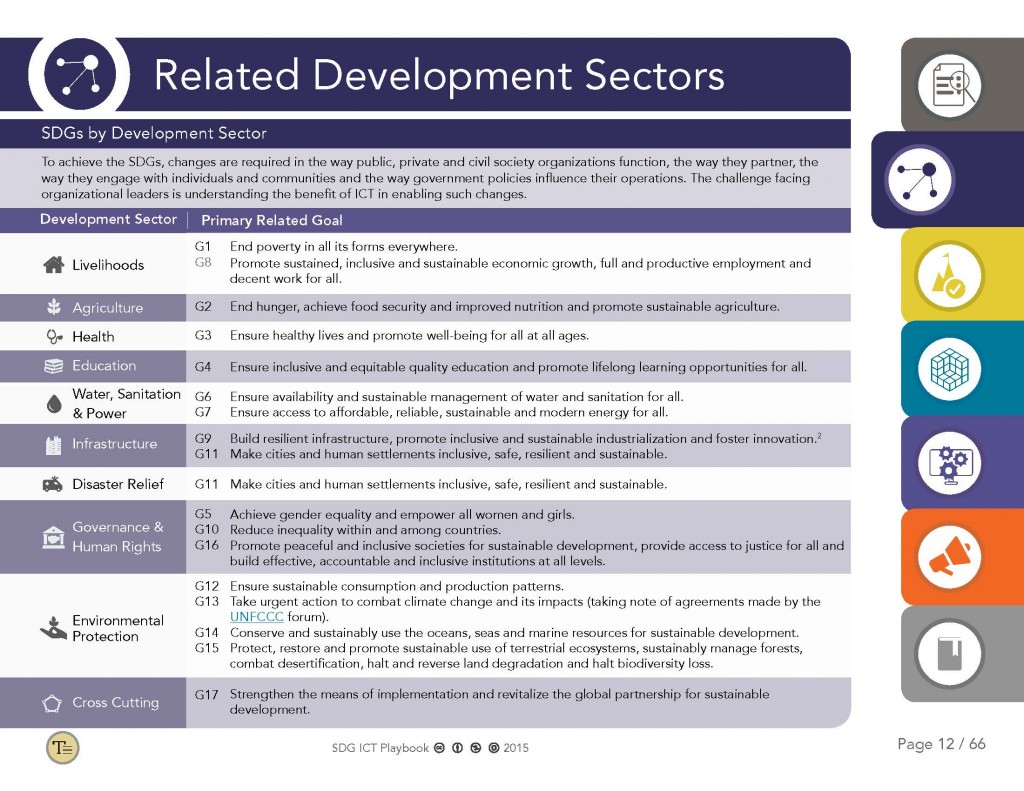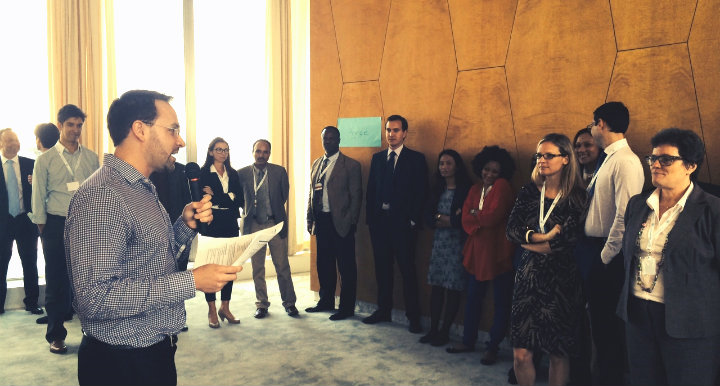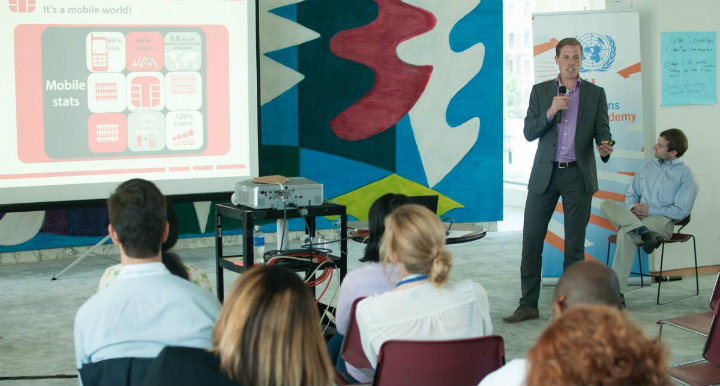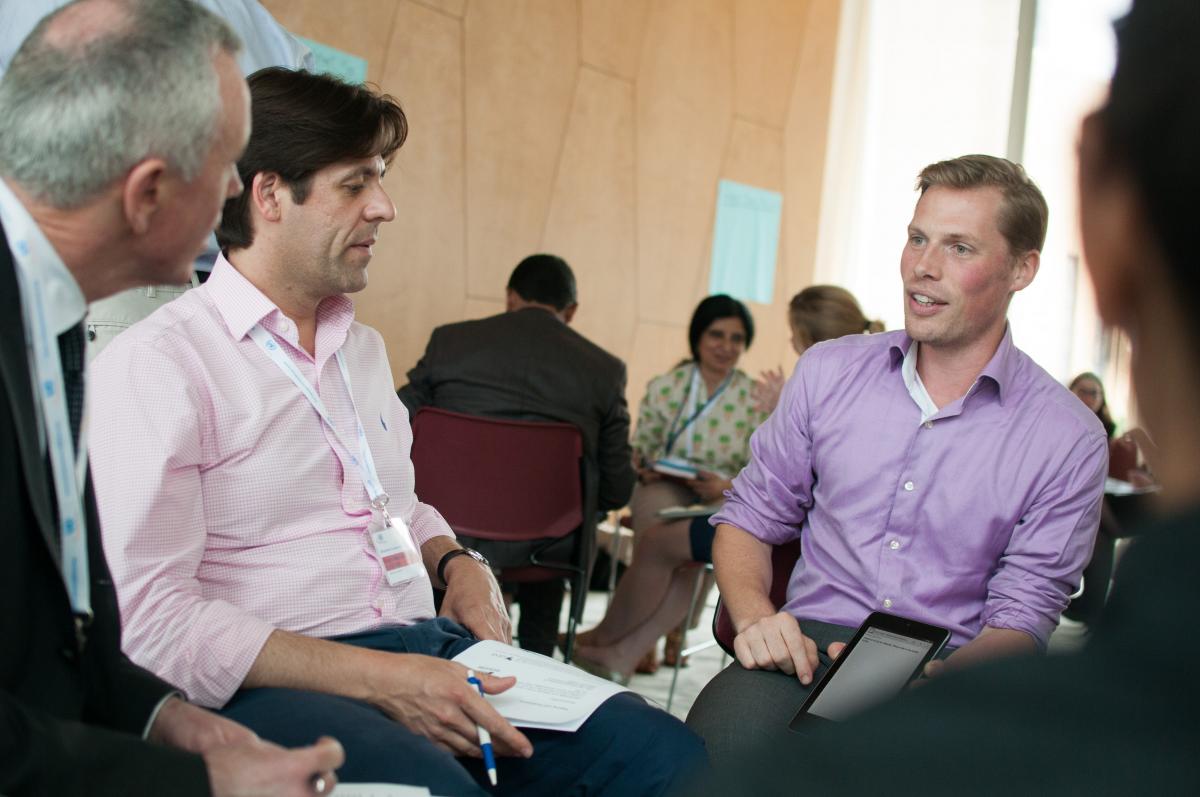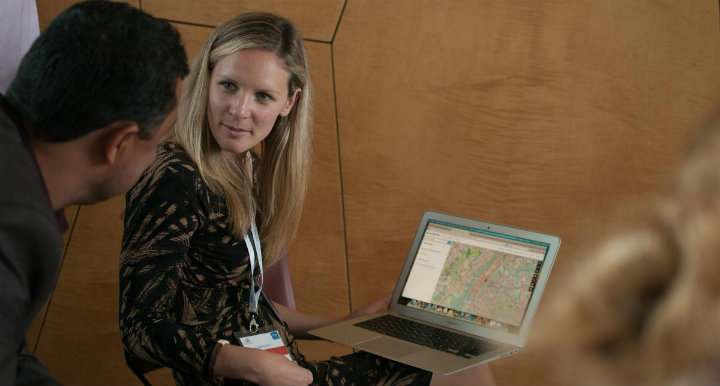3D printers make creating new prosthetic limbs look easy. Smart systems enable farmers to perfectly plant, fertilize, water and harvest their fields. Innovative analytical tools allow governments, NGOs, and businesses to see trends like never before, and cloud computing technologies allow the terabytes of information created daily to be shared from partner to partner across the globe. Worldwide, Information and Communications Technology (ICT) increases output and productivity.
If utilized effectively, these technologies will build the capacity necessary to achieve the United Nations’ Sustainable Development Goals (SDGs) for 2016-2030, lifting millions out of extreme poverty as we move toward a healthier, brighter, global future. The SDGs expand upon the foundation laid by the 2000-2015 Millennium Development Goals (MDGs) by taking a more holistic approach to development issues and approaching economic, social, and environmental development as pieces of the same puzzle.
The SDG ICT Playbook guides organizations in the development sector as they leverage the power of ICT to achieve these goals, providing the context for:
- Governments to build new, innovative, and sustainable ways to connect their populations to technology, thus enabling improved connection with their citizens, making processes more transparent, democratic and efficient, and improving the accessibility of government services.
- NGOs to utilize this new suite of tools to conduct better research, plan more effective initiatives, and analyze their impact.
- Entrepreneurs to enter into emerging markets with innovative products in an efficient, cost-effective manner that supports sustainable development.
In our work toward the SDGs, all actors should support policies, within organizations and on a national and international level, that make technology more accessible to the public.
We must create cross-sector partnerships to build the infrastructure that makes ICT possible and use those partnerships to enhance the efficacy of ICT solutions. From businesses, to governments, to organizations focused on agriculture, health, education, WASH & power, disaster relief, and environmental protection, we all stand to gain from it wouthe increased use and availability of ICT.
Acknowledging that organizations within the ICT field are situated to lead the charge on technology’s accessibility, the SDG ICT Playbook was spearheaded by a partnership between NetHope, Catholic Relief Services, Intel, Microsoft, CDW, and TechChange. While we all occupy a diverse array of organizations, we believe that our institutional differences are what give us, as a group, the holistic view that technology needs to be made accessible from a variety of perspectives, in order for it to be accessed by a variety of potential users.
Check out NetHope’s press release and blog post about the playbook.

